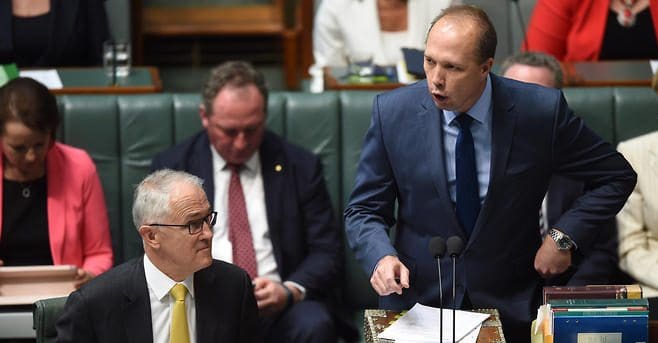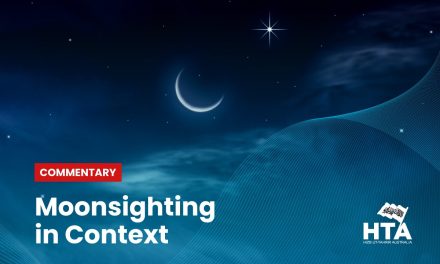After a coordinated Zionist effort aimed at discrediting pro-Palestine voices, made up of a deluge of tabloid articles and TV segments defined by falsehoods and inaccuracies, it became evident that most did not deserve a dignified response at all.
However, amidst this noise, we chose to engage with an opinion piece published in The Australian by Anthony Bergin of Strategic Analysis Australia, advocating for the challenging rather than banning of Hizb ut-Tahrir’s ideas.
The Australian presents itself as a forum for debating ideas, prompting us to submit our response. Despite initial editor interest, and contrary to their proclaimed ethos, we found a lack of enthusiasm to publish our piece. This contrasts sharply with the regular, subsequent, publication of numerous Islamophobic articles that followed, often allowing little time for a response by the subject. For the sake of currency and record, we share our piece below.
Debating the Indefensible
If ideas are to be contested, Hizb ut-Tahrir is all in. But one hand extended in debate whilst the other holds the threat of a “ban” speaks only of the insecurity of the holder.
On June 28, The Australian published commentary by Anthony Bergin, suggesting, amongst other things, “Hizb ut-Tahrir will only become a sizeable threat to our way of life if we lose the war of ideas.”
Globally, Muslims have not bought the snake oil of Western ideology nor its sanctimonious claims to liberal values. We know only of political expediency, enacted directly or through repressive compliant states, that has created nothing but instability in the Muslim world. It is no surprise Muslims desire a unifying political force, that is truly representative of their beliefs, prioritising political and economic stability.
It is within the litany of Western crimes that the occupation of Palestine enters the fray. It is not a complex issue as some would have you believe; every decent human being can recognise it for what it is. Palestine is occupied land, stolen by the British, handed to the Zionists to establish a Jewish homeland, all to serve British imperial objectives. The only difference today is the role of Britain has been replaced by the U.S.
Opposition to the Zionist entity was criminalised at the time of its establishment and in all the decades that have followed. People lost their lives, their homes and their freedom for taking a principled stance against occupation, whatever that stance. There has never been a distinction between political and military resistance under the occupation, and now the collapsing of these same two categories is being played out in the West.
The indolent response to opposing the Zionist occupation is one that then equates it to violence against Jews. The charge of antisemitism only serves to reframe opposition to occupation as aggression. To be clear, the Zionist entity is being opposed in Palestine not because it is Jewish, but because it is an occupier.
In any case, the question of the occupying entity’s legitimacy or longevity are largely redundant, as alterations to broader geopolitical considerations have forced policy makers – including those within the occupation – to already prepare for a post-“Israel” Middle East.
The talk of bans in Australia arise due to the absence of any compelling argument that could grant validity to the occupation – plainly, because there is none. As such, contrary to the fantasy of liberal engagement, ideas are not confronted with ideas, but by political efforts aimed at silencing or criminalising opposition. If Muslims are to be combatted on ideas, the West has lost much ground.
To justify considerations of banning, false accusations of violence are conveniently proffered. But because Hizb ut-Tahrir is known globally for its non-violent work, the category of ‘violent’ must be creatively redrawn, again, further than it already has under existing anti-terror legislation, to now include the mere expression of one’s political position. An approach championed by Anthony Bergin since at least 2007, when he acknowledged in a paper entitled ‘Responding to Radical Islamist Ideology – the case of Hizb ut-Tahrir Australia’, that the work of Hizb but-Tahrir does not contravene any laws, but instead of accepting we all operate under the one legal standard, proposed the enactment of new laws designed explicitly to criminalise ideas with which he disagreed.
Speaking of fantasy, the delusional and wilfully hypocritical stance taken by Western states warrants serious introspection. Claims of violence levelled at organisations is met with suggested bans, yet actual violence of historically evil proportions is rewarded. A position that seeks to reverse an illegitimate occupation is extreme, but the actual occupation – euphemised and afforded international recognition – can be upheld in perpetuity. To call for Palestine to be free from the river to the sea is antisemitic, but territory that has been robbed by the occupying entity – and literally stretches from the river to the sea – is a perfectly justifiable political reality.
Rigorous intellectual debate, especially of the uncomfortable kind, is welcomed by all Muslims. We have a long and proud non-secular history of confronting ideas and establishing inconvenient truths. We do not need to prove ourselves or justify our positions, but we are ready and able to do so in the spirit of genuine engagement. It is the Western world that must justify watching a genocide unfold in real time. To have to answer for such a damning position is an indictment itself.
Hizb ut-Tahrir Australia
Thursday 11th July 2024
![]()

















